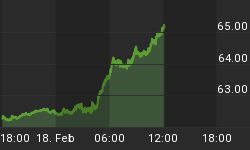Gordon Brown has got his sums wrong. Next week I expect him to tell us that tax revenue is lower than he expected. But this could not have been forecast as it's due to the temporary weakness of the world economy and the Iraq war. He will therefore expect tax revenue to recover with the economy and claim that taxes do not therefore need to go up.
None of this is, in my view, true. I am one of those who forecast the shortfall in tax revenue more than two years ago. It has not been due to any cyclical weakness in the economy, but to structural problems and it won't go away.
This doesn't mean that taxes should be increased immediately. The economy is too weak for that to be sensible. But taxes will need to go up a lot when the time is right, probably by about £20 billion.
In economic terms the right time will be when the economy recovers. In political terms it will be after the next election. Assuming that the economy will pick up in time, New Labour will be wise to call the next election when it does.
In the meantime, Mr Brown, like Dickens's Mr Micawber, will be waiting for something to turn up, preferably tax revenue or a new job. At the moment the second looks the better prospect.
His main mistake has been an excessively simplistic view that the budget deficit simply rises and falls with the economic cycle. This has two problems. First it isn't the case and second we don't know where we are in the cycle.
So far, the forecasting errors have largely been due to the financial bubble. With its demise, revenue from capital gains, stamp duty, income tax on city bonuses and corporation tax on financial companies have all been hit.
Further trouble is in store as the housing bubble comes to an end. As house prices flatten, it will be harder to increase mortgages and savings will rise. Consumption is taxed much more heavily than savings. So tax revenue will disappoint again as savings rise.
If house prices fall things will be even worse. As even the IMF have noticed "Housing booms such as those in the US and UK over the past decade are frequently followed by crashes."
The Chancellor is unlikely to learn from his mistakes, because he would have to admit to them. But if future Chancellors do, they will stop basing their budgets on Treasury forecasts. Instead they will have budgets which meet the needs of the economy.
Britain does not save enough. According to the OECD figures, the UK savings rate in recent years has been persistently four percentage points of GDP below the OECD average. We have even managed to be well below the US, whose low savings rate gets far more publicity. For the past decade we have been engaged in a spending binge, with the household savings rate falling to less than half its previous level. This has boosted tax revenue and instead of spending it, the Chancellor should have been running far higher budget surpluses than he did in the good times to compensate for the profligacy of British voters.
This would have had twin benefits. First he would have avoided the excessive deficits which he now faces. Secondly we could have had a lower level of sterling and higher investment.
One of the saddest features of the UK economy has been our low productivity. Far and away the most likely cause of this has been low investment. Britain is rather efficient with its investment. We get more additional output than most countries from the investments we make. Unfortunately we don't make enough of them.
The cause of low investment has been a combination of a poor return on capital and a high cost of it. Sterling, driven up by the Chancellor's imprudent budgets, has been the key cause of low returns and the abolition of ACT has driven up the cost of capital.
One of today's great ironies is that Chancellor Brown, who talks so much about improving productivity, should have done so much to hold it back.















